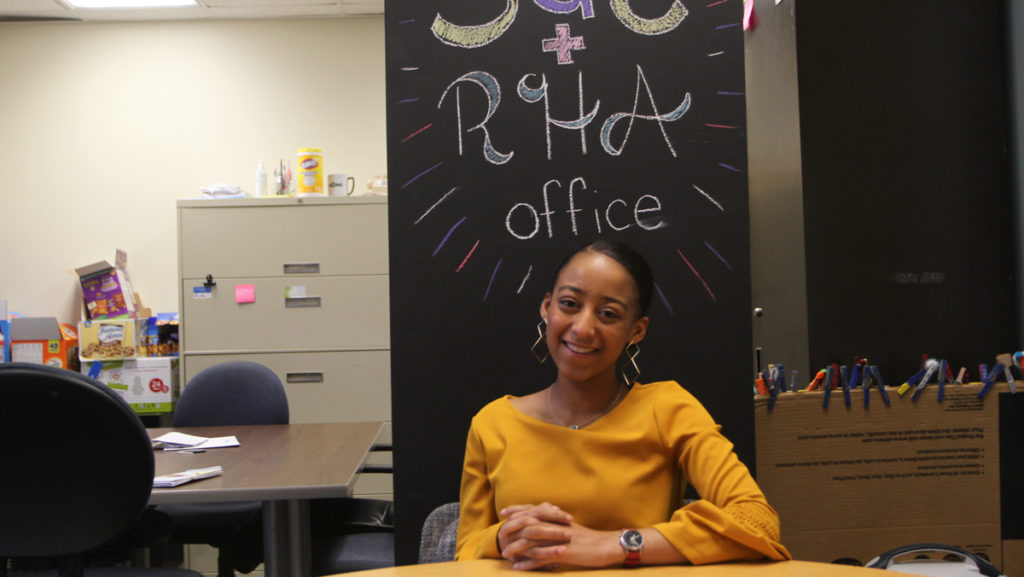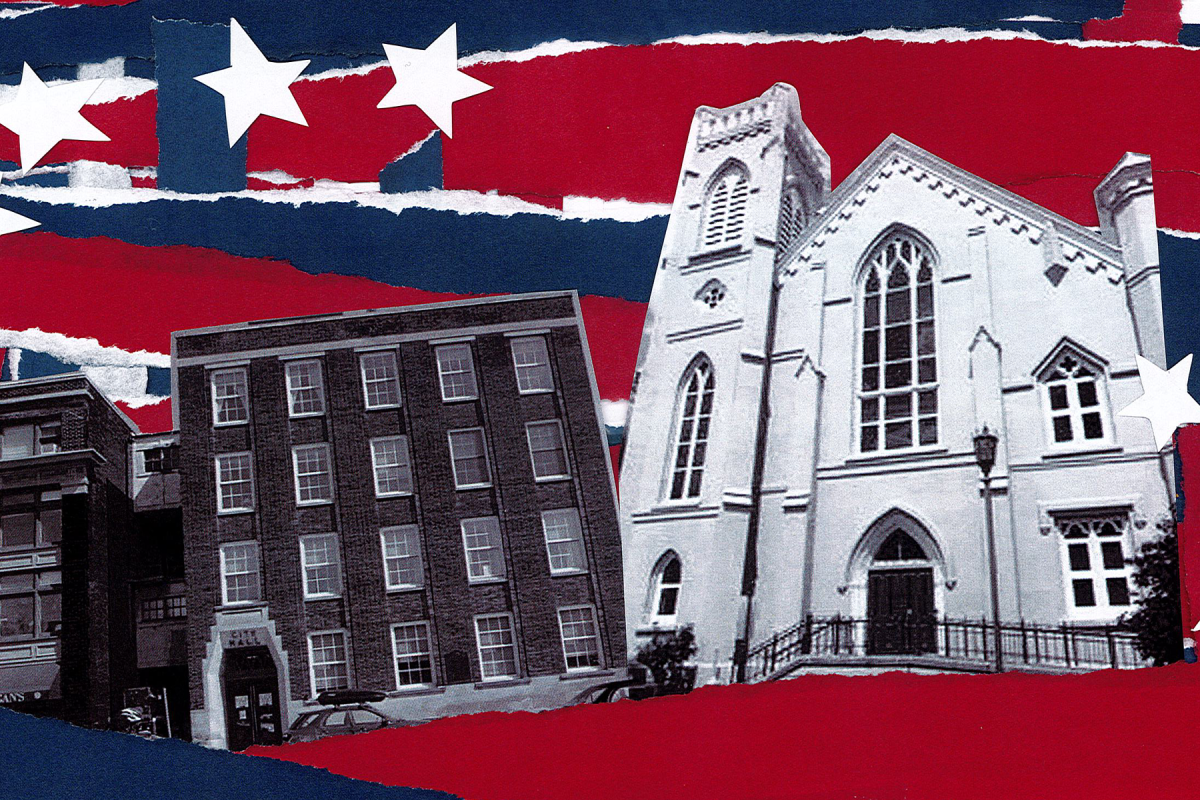The Key to IC is the only slate running for the 2018–19 Student Governance Council executive board. The presidential candidate for The Key to IC is junior Alyse Harris, a communication management and design major with minors in politics and in education.
Harris currently serves as the vice president of academic affairs for the Student Governance Council and is a resident assistant.
Staff Writer Laura O’Brien sat down with Harris to discuss her platform, previous experience with SGC and goals for the college.
This interview has been edited for length and clarity.
Laura O’Brien: Why did you decide to run for SGC president?
Alyse Harris: Being on the e-board, we start to think about what’s coming next year, what’s happening, and I started thinking about it. I had a couple of people start to ask me and kind of approach me like, ‘Oh, are you running? We think you’d be great. We want to be on your ticket.’ … I feel like with SGC this year, I’ve really gotten comfortable, and I’ve really seen how important SGC is, especially for administration and senior leadership. … There’s so many exciting ideas and things that we want to do, and I really just wanted to see that happen and make sure that as a junior, I feel like I have one more year, I have more time to continue to give to this college who has given me so much. And so, it’s really about serving the students, giving back.
LO: How do you think your previous position on the SGC executive board will impact your leadership as SGC president?
AH: I’m currently VP of academic affairs. … I feel like SGC, in addition to some of my other experiences outside, have really created this more comprehensive package, where I can understand how Ithaca operates and the things that are going into that. That position is really unique because I feel that a lot of students don’t know about what happens behind the scenes — how their classes get approved through academic policy committee, that’s one of the committees I sit on — or even just meeting with the provost and talking about all of the different academic things that are going on.
LO: What are the main points of your platform?
AH: Our platform name is The Key to IC, so we’re calling these our keys. Our first key is student-centered, and we think that that’s super important. … For us, “student-centered” means being here for the student body, and so a couple of keywords that go with that “student-centered” are engagement, approachability, because we want students to know what’s going on at SGC. It’s sort of sometimes seen as this thing that happens behind the scenes, and we really want to bring students into that. … Collaboration with student orgs is also another big thing that is important to us. Student orgs and SGC have a very close relationship because of budgeting, and we fund student orgs. In the past, SGC has encountered some issues with student orgs and the allocations process. … The VP of business and finance is definitely going to work in that area to build those relationships and make sure that students really understand how the appropriations process works and how they get money and things they can do to avoid penalties in the future. … Senate engagement as well [is another key]. … We’re working with senators to make sure that they are having a meaningful experience and they are getting what they want out of SGC too because we talk about why we have empty seats, why we have vacancies, and on some level, it’s because students aren’t feeling fulfilled with their SGC experience. … Our last big area is campus pride. … We feel like creating that unified sense of community is something that we can’t do on our own. It’s something that we really have to work together with everyone to build and support.
LO: Do you have any thoughts on your executive board being the only slate running for the position?
AH: We think about this all the time — like “OK, why are we the only people running?” Obviously, it’s kind of a unique position to be in because we’re still working hard and taking the election very seriously and acting like there are other people competing and making sure we’re getting our name out there and really sharing our message. But I think that goes back to senate engagement and also how many students feel qualified to run for this position. … I think that one of the things that I keep in mind as well is that with SGC elections, there always is that “no confidence” section. So if someone was really uncomfortable with that, even though I’m the only person running for this specific position with this board, that’s an option as well. … In some sense, I am running against myself. I take that very seriously, I am going to step up to the plate and do everything just like there is another person running.
LO: What do you think your biggest challenge will be?
AH: One of the biggest challenges right now is that this college is really in a time of transition. With the changes to student affairs and campus life, with the provost switch, with the new president, there’s a lot of shifting going on, which is part of the reason I think having SGC is so important. … Administrators are going to be leaning on us for expertise and experience because a lot of us have been here for longer than they have and are more familiar with the institution, with the students.
LO: What aspect of Ithaca College would you want to improve most?
AH: I always categorize dreams and goals as two completely different things. I think if I was dreaming, more collaboration. That is a continuous goal, it was something that was on the platform last year when we ran, it’s something that’s still going on, and I think that part of that is aimed at shifting the culture of Ithaca College a little bit. … It’s hard to see sometimes the IC students as a unified group. A lot of times students identify more with their school or their major than they do as an Ithaca College student. … I think that takes a lot of time. … I think a goal, which is much more attainable, is about the academic affairs changes and the changes in student affairs and campus life. The ICC, something’s going to happen with that, and being in the committees and having written a proposal about the ICC earlier this year to help students, I’m excited to see what’s going to happen. I’m excited to see what’s going to happen with the changes and the structure of OSEMA, all of that. It’s a really unique time and a unique experience, and I think facilitating all of these transitions with grace and acknowledging that there’s going to be challenges … this is our time to create what we’ve always wanted at this school. I think that’s so exciting, and being able to be the leader to lead us into all of these changes and transitions, hopefully, is a really big honor.








